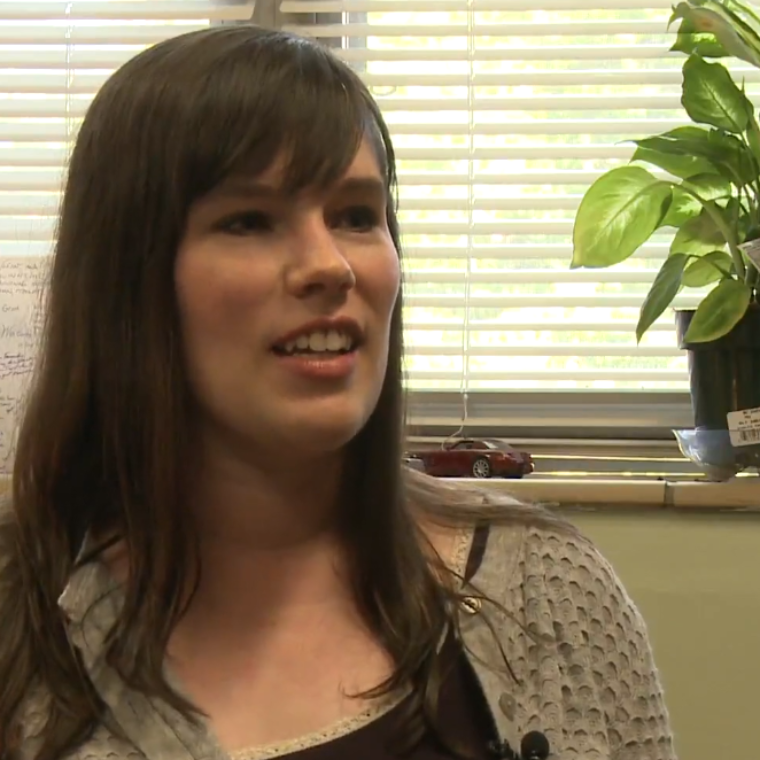Consult the Catalog and Major Academic Plans (MAP)
Courses and requirements change occasionally. For complete and current information on courses please reference links here.
- German Major >
- German Studies Major >
- German MAP (2021-22 Catalog)
- German Minor >
- German Studies Minor >
German Courses

GERM 101, 102. Elementary German. Beginning German with emphasis on understanding, speaking, reading, and writing. Laboratory practice. Cannot receive credit for both 101-102 and 103.
GERM 103. Accelerated Elementary German. Intensive study of beginning German with emphasis on understanding, speaking, reading, and writing. Laboratory work. Required of students with two years of high school German.
GERM 201. Intermediate German. Conversation, composition, and grammar review based on readings and videos; exploration of various aspects of culture of German-speaking communities. Online drill-work. Prerequisite to any further study in German. Prerequisite: GERM 102, 103 (or equivalent)
GERM 209. Intermediate German in Germany. Conversation, composition, and grammar review, with on-site experience of history and culture of Germany. Offered in Germany only.
GERM 338. Advanced German in Germany. Development of oral proficiency. Discussion and interpretation of shorter literary texts, and social and political topics. Offered in Germany only.
GERM 341. Contemporary German Culture and Mores. Introduction to institutions of contemporary German culture and society, including geography, gender relationships and the family, the church, the educational system, politics and government, minority populations, labor and economics, popular culture and media. Overview and analysis of behavioral norms and mores in the Federal Republic, coupled with comparative reference to the United States and broader German-speaking Europe. Intensive practice in oral and written communication with emphasis on listening comprehension and natural spoken expression based on audio recordings, video materials, and readings of authentic texts. Lab fee required.
GERM 342. Contemporary German Culture: Politics, Economics, and Current Events. An exploration of contemporary German culture as mediated through German newspapers, magazines, and various online sources. Special focus on current events with an emphasis on political and economic issues in Germany, Austria, and Switzerland. Continued review of grammar started in German 341. Conducted in German.
GERM 343. German Cultural Identity from Charlemagne to the Berlin Republic. A survey of cultural periods and developments in German-speaking Europe from early beginnings in the Holy Roman Empire to the present-day Berlin Republic with special focus on the question of German national identity. The course will investigate a variety of cultural artifacts including short prose texts, poetry, dramatic performances, film clips, select artworks, and architectural examples. Emphasis on cultural literacy and communicative expression. Taught on-site in Munich, Berlin, and environs yearly during May-June Wheaton in Germany program. Conducted entirely in German. Prerequisites: either GERM 341 or 342 (and instructor approval). GP, HP
GERM 351. Topics in German Literature. Topics in German literature, including genre, movement, and author studies. Taught primarily in German. May be repeated for credit. (4) Prerequisite: a 300-level course in German or instructor permission. (4) LE
GERM 353. Topics in German Literature and Culture. Varied subjects, including genre, movement, and author studies, film, cultural history, or advanced language. May be repeated for credit. (2)
GERM 361. Topics in German Language and Cultural Studies. Focus on issues in German cinema, history, philosophy, society and theology, or on German language for special purposes, such as German for business and economics. Discussion, writing and presentation assignments, and major readings and film screenings in German. Prerequisite: GERM 341, 342, 343, or instructor approval. May be repeated for credit. (4)
GERM 363. Topics in German Language and Cultural Studies. Focus on issues in German cinema, history, philosophy, society and theology, or on German language for special purposes, such as German for business and economics. Discussion, writing and presentation assignments, and major readings and film screenings in German. Prerequisite: GERM 341, 342, 343, or instructor approval. May be repeated for credit. (2)
GERM 371. Methods of Teaching Foreign Languages. The study of various methodologies, theories, and techniques of foreign language teaching; introduction to linguistics for second-language acquisition. Practice in a variety of micro-teaching situations. Required for secondary education certification; otherwise, an elective toward major or minor.
GERM 372. German for Reading. Intensive introduction to German grammar for the special purpose of reading/translating academic prose (scholarly books and journal articles), with a particular focus on readings in theological disciplines and the humanities. Acquisition of a broad recognition vocabulary and development of basic reading comprehension abilities. Recommended for undergraduates anticipating graduate study in humanities and theological studies. Does not count toward Foreign Language Requirement. Not open to German majors/minors without special permission. Cross-listed with BITH 505.
GERM 373. German for Reading II: Translation Workshop. Building on GERM 372/BITH 505, this course meets weekly during the subsequent semester for an intensive workshop in reading/translating academic prose (primary sources; scholarly books and articles), with a particular focus on readings in theological disciplines and the humanities. Emphasis on textual analysis, review and expansion of key structures, management of linguistic challenges, and development of global reading skills. Prerequisite: GERM 372, BITH 505 or the equivalent. Cross listed with BITH 506.
GERM 431. “Other” Germans: Turkish and Minority Experience. Introduction to minority and multicultural identity and cultural hybridity in contemporary Germany, Austria and Switzerland, with focus on marginal societal groups, including evangelical Christians, quasi-religious sects, and Turkish and other immigrant populations. Analysis of immigrant literary and cinematic works and overview of social challenges in immigration and asylum policy, with particular focus on “guest workers,” integration of Turkish immigrants, and Christian-Muslim relations. Prerequisites: GERM 341 or 342 or permission of instructor. Meets legacy diversity designation. GP
GERM 432. The Holocaust and Contemporary Jewish Experience. Written and oral analysis of depictions of the Holocaust in various national literary and cinematic media and of contemporary Jewish authors in the German-speaking countries; exploration of issues facing contemporary Jews in German-speaking Europe. Includes medium-length research paper. Conducted in German with some discussion in English. Meets legacy diversity designation. GP
GERM 437. Topics in German Language and Literature. Varied subjects, including genre and movement studies, film, culture, and advanced language. May be repeated for credit. (2 or 4)
GERM 489. Special Topics. Advanced study in language, literature, and civilization in Germany. Offered in Germany only. (2 or 4)
GERM 491. Practicum. Offered in Germany only. Graded pass/fail. (0-2)
GERM 492-1. Agents of Change: Faith and the Social Order in German Literature and Film.
Intensive seminar on interactions between society and varieties of belief in Germany, Austria and Switzerland. Literary readings and analysis of cinematic works, supplemented with critical theories and socio-historical sources in German and English. Open to students who have taken GERM 494-2 or by permission. Offered alternate years. Cross-listed with GERM 494-1. (2)
GERM 492-2. Faith and its Role in German Literature from the Medieval Period to the Fall of the Third Reich. Intensive seminar with emphasis on the intersection of German literature with Christian theological perspectives from the High Middle Ages until the end of World War II. Open to students who have taken GERM 494-1 or by permission. Offered alternate years. Cross-listed with German 494-2. (2)
GERM 494-1. Agents of Change: Faith and the Social Order in German Literature and Film. Intensive seminar on interactions between society and varieties of belief in Germany, Austria and Switzerland. Literary readings and analysis of cinematic works, supplemented with critical theories and socio-historical sources in German and English. Students will produce a major research paper that integrates Christian faith with the subject matter. Offered alternate years. Meets Senior Capstone Requirement. Lab fee required.
GERM 494-2. Faith and its Role in German Literature from the Medieval Period to the Fall of the Third Reich. Intensive seminar with emphasis on the intersection of German literature with Christian theological perspectives from the High Middle Ages until the end of World War II. Students will produce a major paper that integrates faith with the subject matter. Offered alternate years. Meets Core Capstone Requirement. Prerequisites: GERM 341, 342, 343 (or other study abroad experience) or special permission of instructor. Lab fee required.
GERM 495. Independent Study. Reading and individual study of some aspect of German culture, literature, or language. Department approval required. (1-4)
GERM 496. Internship. Department approval required. Graded pass/fail. Prerequisite: junior or senior standing with German major. (2 or 4)



